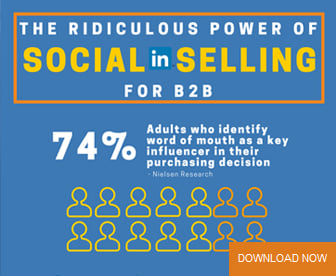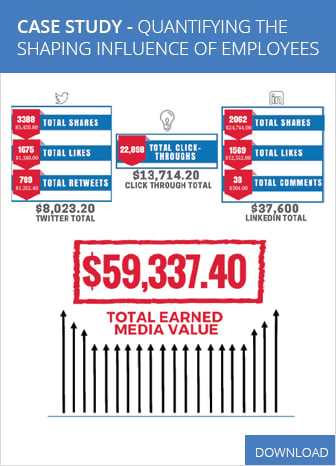Why Every Business Needs to Become a Platform
What’s the hottest trend in business right now? Social networks such as Facebook and Twitter? Sharing economy apps such as Uber and Airbnb? Apple, and its line of personal computing devices? Or Software as a Service for the enterprise, such as Salesforce?
You could probably make a case for any one of these, but here’s the thing: Although on the surface these companies appear to have completely different business models, they all share one very powerful component: a scalable online platform connecting people and ecosystems.
Each monetizes their platform differently. Facebook and Twitter sell ads alongside the content people share with each other. Uber and Airbnb take a fee for connecting buyers and sellers of transportation and lodging respectively. Apple manufactures products, owns retail stores and also has an open platform for developers to build and sell apps that makes the products Apple sells even more desirable. Salesforce does the same thing in the B2B world. Its cloud platform lets sales and marketing teams connect and share information about customers and prospects, and developers have enriched the value of the platform with a host of applications that integrate to the platform and add to its functionality.
Platforms’ speed of growth and economies of scale enable them to out -compete traditional businesses. To stay competitive, businesses have to learn to leverage the power of platforms. That starts with platform thinking.
What is platform thinking? The underlying strategies are not new. There are elements of vertical integration and franchising, classic business strategies for achieving operational efficiency and scale. What’s new is how technology allows companies to execute these strategies at unprecedented scale while also streamlining what were previously complex processes. Any company that has a product or software or a business system they’ve perfected that enables other companies, even companies as small as one person, to better operate their business can evolve to become a platform company by thinking about their business through these three lenses.
1. Leveraging network effects. Network effects are the phenomenon whereby a good or service becomes more valuable when more people use it, so there is a relentless focus on building as large a network as possible.
That means making sure barriers to joining are as low as possible. For example, to become an Uber driver, you complete an online application, get your car inspected, wait for your background check to clear and start driving. By allowing people to provide transportation on demand without having to have access to an extremely scarce and expensive taxicab license, Uber was able to amass a U.S. network of over 160,000 drivers in just five years. The traditional U.S. taxi industry, which began in the 1920s, by comparison has 232,000 drivers.
Another way to build your network is to increase the value of the platform by opening it up for others to build on. Apple, Facebook and Salesforce have done this by offering APIs (application programmer interfaces) and SDKs (software development kits) so that people can build apps that extend the platform and make it even more compelling.
2. Customer intimacy. Customer intimacy is thinking about and solving for everything the customer needs to be successful in the area your product or service addresses, mostly using technology. Companies that think competitively try to win on price or features. Customer intimate companies try to win on experience, and they think about that not just in terms of their customers, but their customers’ customers.
They ask questions such as, how do we improve our value to our customers? How do we help them acquire and retain more customers? How do we reduce friction, how do we streamline their processes and the number of solutions they need to use to do their jobs? How do we make them feel safe and secure transacting with us?
Salesforce was thinking along these lines when it acquired SteelBrick, a company that helps sales reps give price quotes, take orders, generate invoices and accept payments. Is there other software that does this? Yes, but Salesforce is betting that if you’ve brought your prospect to the point of sale on their platform you’d rather do the rest right there if it’s easy to do so.
3. Obsessive curation of the brand experience. For most businesses, the initial cost of acquiring a customer, and building a network, is relatively high. With so much time and energy invested it makes sense to do everything you can to maintain that relationship. These days that means things like designing a frictionless web experience and providing a mobile app, so people can interact with your business anywhere, any time.
It means taking user data and pushing out actionable insights. It means things like embedding payments right into the platform, eliminating the hassle of having to enter credit card or PayPal account information. It means continually working to make it safer, easier and more delightful to do business on your platform than any other alternative.
Platforms are at the core of the successful businesses of the future. These opportunities are not limited to today’s platform giants. By adopting platform thinking and new technology, any business can evolve to join the platform economy.
Kurt Bilafer is a sales veteran with more than 20 years of experience in direct sales, channel and partner development and business strategy. Prior to WePay, he was Global Vice President of Sales at SAP, previously serving the company as Vice President of Analytics for Asia, Pacific & Japan and Global Vice President of Business Analytics and Technology solutions, Ecosystem and Channel Partners. He was also SAP North America's Vice President, heading up enterprise performance and risk management and spent a year with PricewaterhouseCoopers to rebuild their SAP National Practice. Bilafer joined SAP after its acquisition of Pilot Software.
Edited by Maurice Nagle











